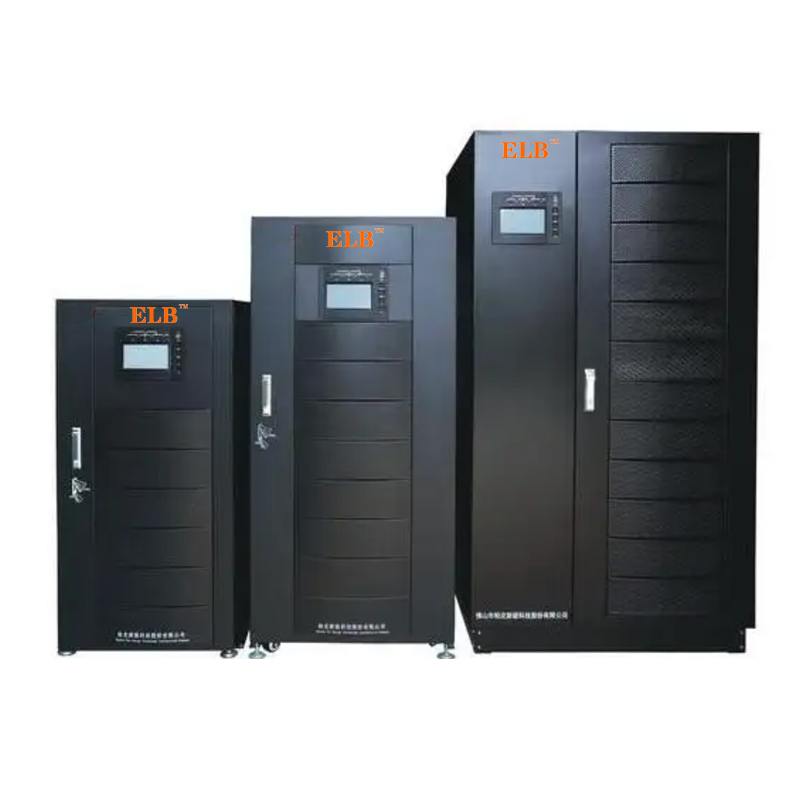BLOG
Discuss the application of lithium iron phosphate battery in UPS
The UPS energy storage system is usually lead-acid battery. The performance of lead-acid battery is inferior to that of lithium battery. The use of lithium iron phosphate battery UPS can greatly improve the performance of UPS. Lithium batteries are currently the best performing batteries, and are superior to lead-acid batteries in terms of volume, capacity, weight, temperature range and service life. In this article, the editor will analyze the application of lithium iron phosphate battery in UPS.
Application of lithium iron phosphate battery in UPS
UPS can provide energy to the load when the mains is abnormal or power outage, and it is widely used in communication, electric power, petroleum, finance and other industries. The energy storage system of UPS is usually lead-acid battery. However, lead-acid batteries not only have low energy density, large volume, large weight, and narrow temperature range, but also require high ambient temperature and pollute the environment. ?Lithium battery is the battery with the best performance at present. Using lithium battery as the energy storage device of UPS can greatly improve its performance. Therefore, based on lithium battery technology, this paper designs a set of lithium iron phosphate battery UPS system, which greatly improves the performance of UPS.

Lithium battery UPS scheme design
When the mains is normal, the traditional UPS will supply the AC output to the load after the input AC mains voltage is stabilized, and at the same time charge the internal battery; when the mains is interrupted, the UPS will immediately convert the DC power of the internal battery into 220V AC power Continue to supply the load, keep the load working properly and protect its hardware and software from damage.
The lithium battery UPS system has made certain improvements on the basis of the above functions. Different from the traditional UPS, the energy storage device of the lithium battery UPS system adopts an independent module, that is, the iron-lithium battery cabinet system. Transmission of battery usage status and system alarm signals greatly facilitates system maintenance.
Experimental verification
Use the lithium iron phosphate battery UPS system to supply power to the load machine, and test the performance of the lithium battery UPS system by adjusting the working mode of the machine (including no-load mode and heating mode) and simulating the power failure of the mains
Lithium battery UPS test
When the load machine is in the no-load mode, turn off the main power supply to simulate the power failure of the mains, and the lithium battery cabinet starts to discharge at this time. The discharge rate of the lithium battery cabinet was measured to reach 86%, and the discharge power reached 65.7KW. When the load machine is in the heating mode, it simulates the power failure of the mains. At this time, the lithium battery cabinet starts to discharge. The measured discharge power of the lithium battery cabinet is 104.42KW, and the effect is ideal.
Analysis of test results
When the simulated mains power failure, the UPS switches to the lithium battery to discharge, the circuit is normal, and the test discharge data is consistent with the power value of the load machine. When simulating a mains power failure, when the load machine is in the heating mode, the discharge current of the lithium battery cabinet increases significantly compared to when the load machine is no-load, and the discharge power of the lithium battery cabinet is measured. A total of 208.20KW, the effect is ideal.
In summary, the installation and testing of the lithium battery UPS system have achieved the expected results, which can well meet the power demand of the load machine and ensure the good operation of the equipment. ?Using lithium battery instead of lead-acid battery as the energy storage device of UPS, based on lithium battery technology, designed a set of UPS system with lithium iron phosphate battery, its work is stable and reliable? It can better meet the working requirements of the load machine when it heats up, the discharge power is larger, and its performance is better than that of the traditional UPS.
With the development of information technology, people have higher requirements for the reliability of power supply systems, and have a stronger awareness of achieving green environmental protection. Therefore, it is more urgent to solve many problems existing in VRLA batteries.
Comparison of valve-regulated lead-acid batteries and lithium iron phosphate batteries:
1. Low mass-to-energy ratio, low volume-to-energy ratio, large battery weight, and large footprint.
2. The charging and discharging efficiency is low, the charging and discharging efficiency is about 92%, and the charging and discharging efficiency will decrease after a period of use.
3. Valve-regulated lead-acid batteries have a short service life, with a design life of 5-8 years, and most of them in actual use for 3-5 years.
4. The operating ambient temperature is required to be high. When the temperature exceeds 25 degrees, the battery life will be lost by half when the ambient temperature increases by 7 to 10 degrees.
5. A large number of batteries use lead, which is easy to cause serious pollution to the environment in the process of mining, processing and use.
Lithium iron phosphate batteries have the following advantages:
1. High output voltage: LiFePO4 battery operating voltage range: 2.5~3.6V, platform about 3.2V;
2. Strong safety: the lithium iron phosphate cathode material has good electrochemical performance, the charging and discharging platform is very stable, the structure is stable during the charging and discharging process, and it can be overdischarged to zero volts. Even if the inside or outside of the battery is damaged, the battery does not burn, does not explode, and has better safety;
3. Good high temperature performance: when the external temperature is 65 °C, the internal temperature is as high as 95 °C, and when the battery is discharged, the temperature can reach 160 °C, and the structure of the battery is safe and intact;
4. High-efficiency output: standard discharge is 2~5C, continuous high-current discharge can reach 10C, and instantaneous pulse discharge (10S) can reach 20C;
5. High cycle life: after 500 cycles, the discharge capacity is still greater than 95%;
6. easy to use: fast charging;
7. Environmental protection: the whole production process is clean and non-toxic. All raw materials are non-toxic.
8. Non-rare resources: The lithium iron phosphate battery uses phosphoric acid source, lithium source and iron source as materials, without strategic resources and rare resources.
Application scenarios of lithium iron phosphate batteries in UPS:
1. Industrial equipment
The UPS power supply floats the battery during normal time. When the industrial equipment suddenly loses power, the emergency power supply starts to work. When the mains returns to the power supply, the UPS battery returns to the floating state to ensure the necessary backup power supply capacity.
Due to uncertain interference factors such as power failure, voltage sag and surge, continuous undervoltage and overvoltage, and frequency fluctuation during the supply of AC mains, these factors will affect the continuous operation of industrial equipment, and even affect the operation of industrial equipment. damage to the state of the equipment. Lithium battery UPS power supply has become a way to adjust voltage changes, eliminate various electrical disturbances, and provide high-quality power supply.
2. Communication base station
The power supply of the base station is introduced through the mains, and then converted into a 48V DC power supply through the inverter system of the UPS to supply power for the communication equipment. When the mains power is interrupted, the battery pack provides uninterrupted power supply to the base station to ensure the normal operation of the base station; when the mains power is restored, the UPS battery stops supplying power and restores the inverter function.
3. Data Center
The data center must ensure the continuity of power supply and the safety of the power supply system. In the information center room of the data center, lithium battery UPS uninterruptible power supply is generally used as an important safety guarantee. UPS is a kind of uninterruptible power supply with energy storage device and inverter as the main component. When the mains power supply is interrupted, the UPS can ensure the continuity of the output power supply.
In order to solve the above problems, the communication industry and some well-known brands of high-power UPS equipped with lithium iron phosphate battery applications are increasing, and a new trend in the lithium battery UPS market is the growing interest in lithium ion batteries in data center and UPS applications.
With the maturity of lithium battery technology and the growth of manufacturing capacity, more suppliers have begun to enter the application field of lithium iron phosphate battery UPS power supply, and the end user’s understanding of the practice of the full life cycle of the data center will be conducive to the deployment of lithium batteries Do more and more planning and budgeting. With the continuous advancement of lithium battery research, the replacement of lead-acid batteries with lithium batteries will become a new option for UPS usage scenarios.
Want to produce customized lithium battery according to special requirement, welcome to consult ELB team to get more details.
THE ELB BRAND PROMISE

QUALITY
4000 TIMES CYCLES 10 YEARS DESIGN LIFESPAN

CERTIFICATION
ISO9001:2015,ISO14001:2015,OHSAS18001:2007 CE, CB, UL, KC, FCC, BIS, IEC62133.

SERVICES
EXW, FOB, DAP, DDP OPTIONAL
T/T, L/C OPTIONAL


